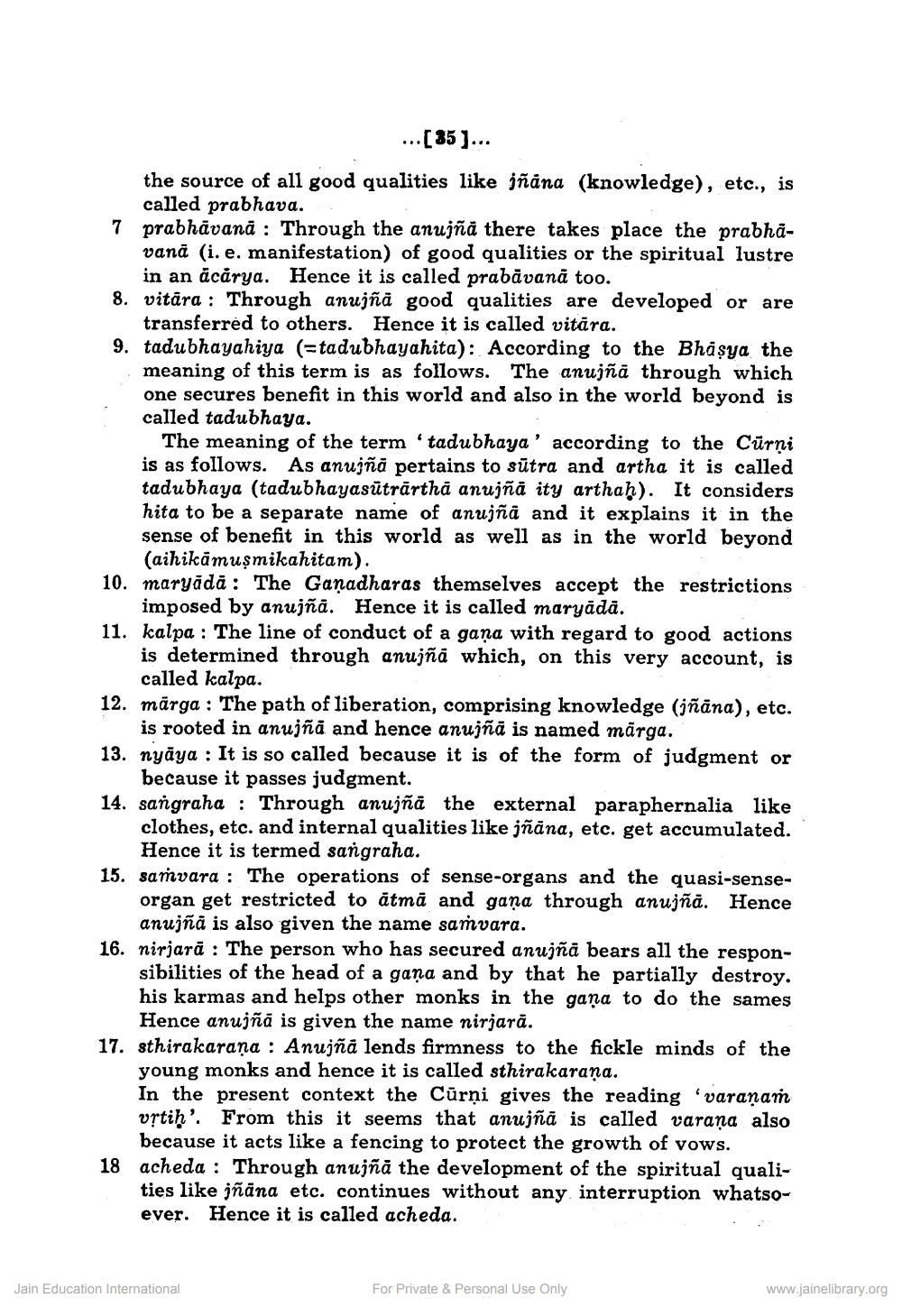________________
... [35]...
the source of all good qualities like jñana (knowledge), etc., is called prabhava. prabhāvanā : Through the anujña there takes place the prabhavanā (i. e. manifestation) of good qualities or the spiritual lustre
in an acårya. Hence it is called prabāvanā too. 8. vitāra : Through anujñā good qualities are developed or are
transferred to others. Hence it is called vitāra. 9. tadubhayahiya (tadubhayahita): According to the Bhasya the
meaning of this term is as follows. The anujñā through which one secures benefit in this world and also in the world beyond is called tadubhaya.
The meaning of the term 'tadubhaya' according to the Cūrni is as follows. As anujña pertains to sūtra and artha it is called tadubhaya (tadubhayasūtrārthā anujñā ity arthah). It considers hita to be a separate name of anujña and it explains it in the sense of benefit in this world as well as in the world beyond
(aihikāmuşmikahitam). 10. maryādā: The Gañadharas themselves accept the restrictions
imposed by anujñā. Hence it is called maryādā. 11. kalpa : The line of conduct of a gana with regard to good actions
is determined through anujñā which, on this very account, is
called kalpa. 12. mārga : The path of liberation, comprising knowledge (jñāna), etc.
is rooted in anujña and hence anujñā is named märga. 13. nyāya : It is so called because it is of the form of judgment or
because it passes judgment. 14. sangraha : Through anujñā the external paraphernalia like
clothes, etc. and internal qualities like jñāna, etc. get accumulated.
Hence it is termed sangraha. 15. samvara : The operations of sense-organs and the quasi-sense
organ get restricted to ātmā and gaņa through anujña. Hence
anujñā is also given the name samvara. 16. nirjarā : The person who has secured anujñā bears all the respon
sibilities of the head of a gana and by that he partially destroy. his karmas and helps other monks in the gana to do the sames
Hence anujñā is given the name nirjară. 17. sthirakaraṇa : Anujña lends firmness to the fickle minds of the
young monks and hence it is called sthirakarana. In the present context the Cūrņi gives the reading 'varanam vrtih'. From this it seems that anujñā is called varana also
because it acts like a fencing to protect the growth of vows. 18 acheda : Through anujñā the development of the spiritual quali
ties like jñāna etc. continues without any interruption whatsoever. Hence it is called acheda.
Jain Education International
For Private & Personal Use Only
www.jainelibrary.org




